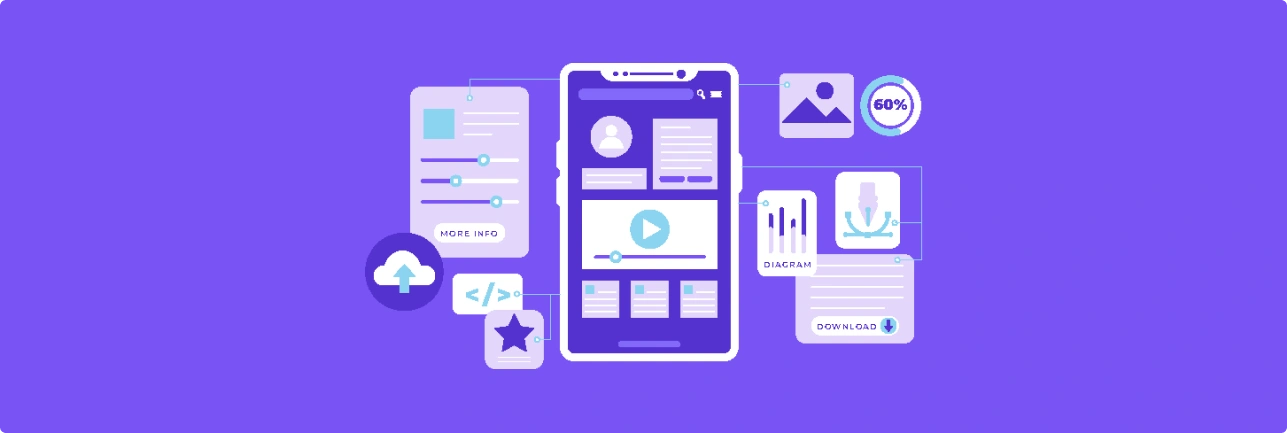A business grows with customers, and you must focus on what they need and what they want. As far as mobile apps are concerned, android is a popular platform. People using android apps, powered by android ap development service providers are in millions and hence android applications are becoming necessary for business growth. Here is a fine discussion stating the reasons why android apps are vital for expanding your business.
Reasons Android App Development Services are Considered Vital for Business Growth:
1. Expansive Market Reach
Android powers over 70% of smartphones globally, offering unparalleled access to a massive audience. Android app development service providers will charge your business with more and more customers across diverse geographic and demographic segments. Using their expertise, you get apps which are globally accepted for reaching millions of customers.
2. Cost-Effective Development and Customization
Android is an open-source platform, which makes app development more cost-effective compared to other ecosystems. Businesses can benefit from lower development costs without compromising on quality. Moreover, Android app development services allow for high customization, enabling companies to create tailor-made solutions that meet specific business needs and user preferences.
3. Improved Customer Engagement and Loyalty
Android applications can bring customer engagement and loyalty. Using android apps is much easier and user-friendly as compared to apps on iOS platforms. Besides, the app is available on a wide range of devices at different price points. When you have an android application, the application will have features like push notifications, personalized content, and loyalty programs that can boost customer retention. This, in turn, increases customer satisfaction, loyalty, and repeat business.
4. Enhanced Brand Visibility
Having a dedicated Android app significantly boosts brand visibility. Every time a user interacts with the app; it reinforces brand awareness. Furthermore, a well-designed app with seamless functionality and compelling features positions the business as a tech-savvy, customer-centric brand. Android app development services ensure that your app remains visible and competitive in the crowded Google Play Store.
5. Access to Cutting-Edge Technologies
When you are anxious to explore technologies, you must have an android application. Android app development service providers can integrate trending technologies like AI, IoT (Internet of Things) and Block chain in Android apps. For example, integrating AI-driven chatbots improves customer support, while IoT connectivity enables smart solutions for industries like healthcare and manufacturing.
Winding Up
Android apps have helped businesses achieve many successes milestones and today maintaining your brand on a mobile device means having an android app. If you want to achieve upward rising growth curves, an android app development service provider will be your best friend. Whether you’re a startup or an established enterprise, a robust Android app is a vital tool for achieving sustainable business success.
The FAQ’s:
FAQ 1. Why is Android app development important for business growth?
The Android app development is crucial for business growth due to its expansive market reach, cost-effectiveness, customization options, and ability to enhance customer engagement. With Android holding over 70% of the global smartphone market, businesses can tap into a large audience and create tailored solutions that drive customer satisfaction and loyalty, all while staying competitive.
FAQ 2. What are the benefits of choosing Android for app development over other platforms?
Android offers several advantages over other platforms, such as its open-source nature, which significantly reduces development costs. Additionally, Android app development services allow for high customization, enabling businesses to tailor their apps to specific user needs and preferences. The platform’s wide global reach further enhances the potential for business growth.
FAQ 3. How does an Android app improve customer engagement and loyalty?
An Android app provides a direct communication channel between businesses and customers. With features like push notifications, personalized content, and loyalty programs, companies can keep customers engaged and encourage repeat business. A well-designed app with an intuitive user interface also enhances the customer experience, promoting loyalty.
FAQ 4. What technologies can be integrated into Android apps?
Android apps can integrate cutting-edge technologies such as Artificial Intelligence (AI), Internet of Things (IoT), and blockchain. These integrations help businesses offer innovative solutions, enhance operational efficiency, and stay competitive. For example, AI-powered chatbots improve customer support, and IoT enables smart solutions in industries like healthcare and manufacturing.
FAQ 5. How do Android apps provide valuable business insights?
Android apps offer valuable data through analytics tools that track user behavior, engagement, and preferences. This data allows businesses to make informed decisions, optimize marketing strategies, improve product offerings, and create personalized experiences. By leveraging these insights, companies can enhance their overall performance and drive growth.








